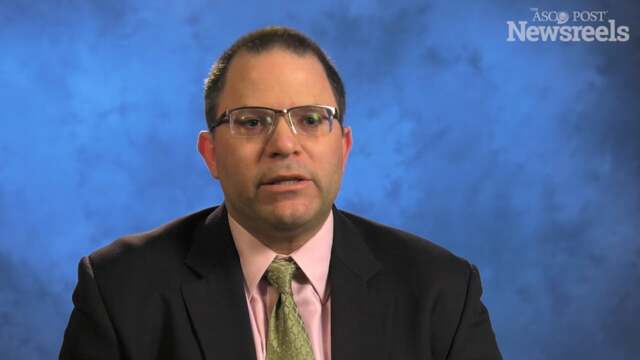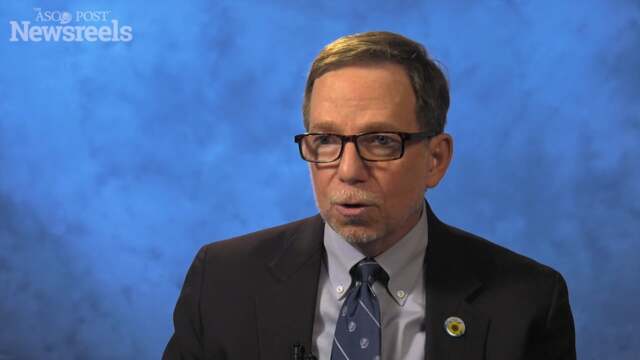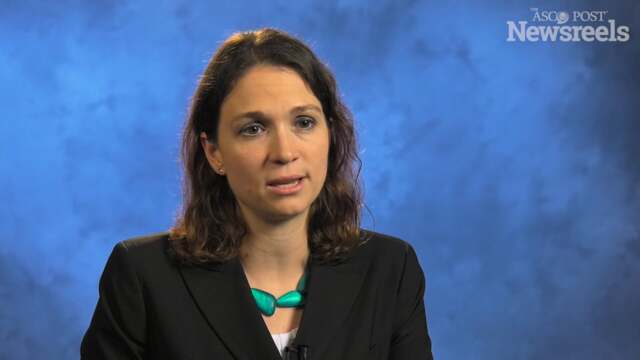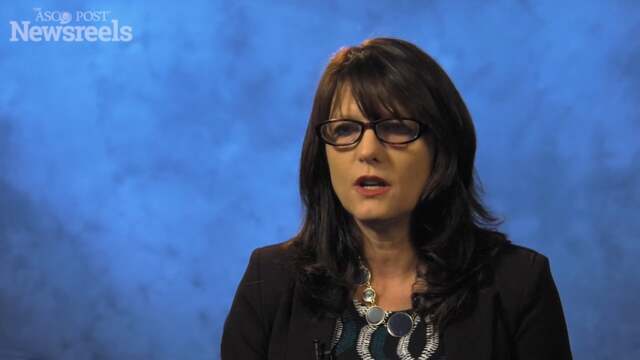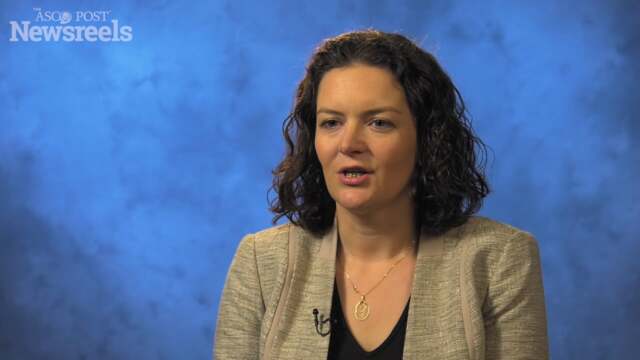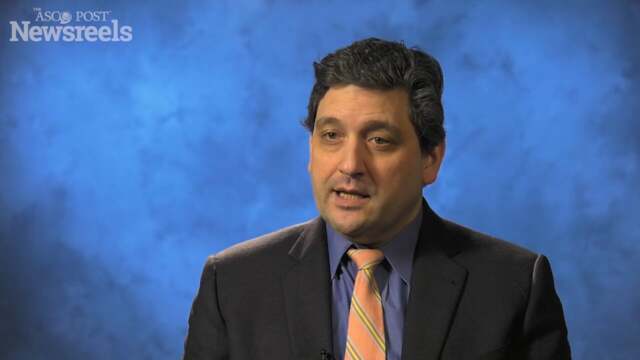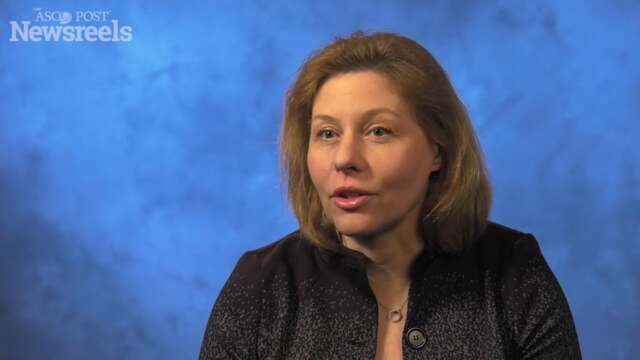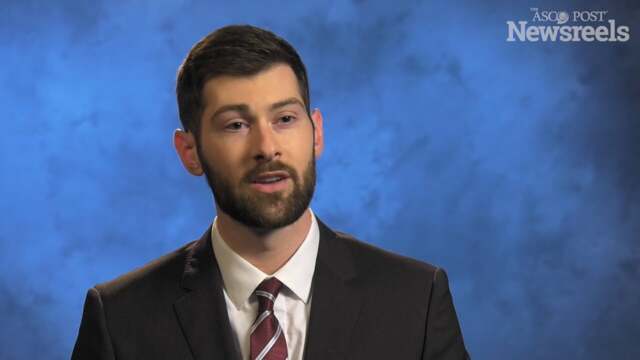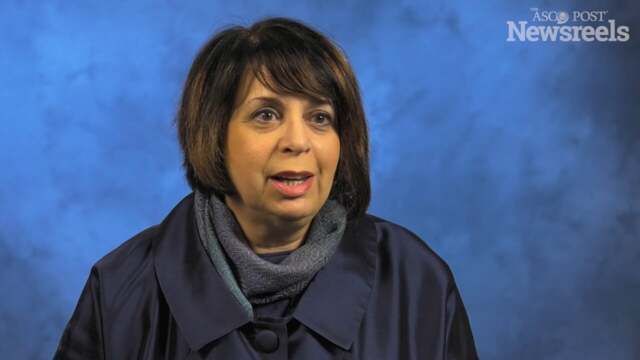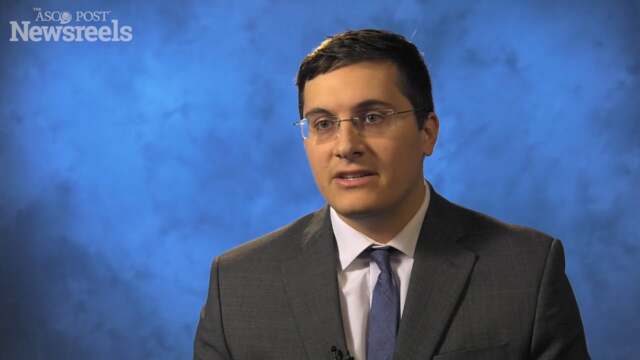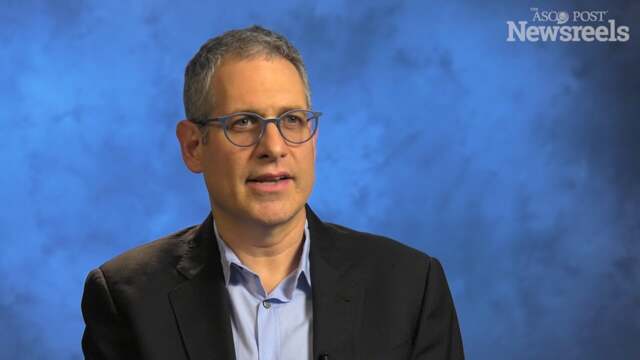2017 Quality Care Symposium
With Financial Toxicity in Oncology Care on the Rise, Providers Need to Help Address Patients’ Financial Issues
At the 2017 ASCO Quality Care Symposium, Dan Sherman, MA, LPC, discussed potential solutions to the persistent challenge of financial toxicity in the oncology setting. Mr. Sherman is a clinical financ...
Can You Hear Me Now? Listening to the Cancer Patient
At this year’s ASCO Quality Care Symposium, Neeraj K. Arora, PhD, Associate Director at the Patient-Centered Outcomes Research Institute, opened his presentation by stressing that integrating the pat...
An Oncology Care Model: One Institute’s Experience
At this year’s ASCO Quality Care Symposium, Blase N. Polite, MD, MPP, Associate Professor of Medicine at The University of Chicago Medical Center, examined his practice’s experience with the Oncology...
CancerLinQ: Big Data for Quality Benchmarking
At this year’s ASCO Quality Care Symposium, CancerLinQ’s Vice President and Medical Director, Robert S. Miller, MD, shed light on CancerLinQ’s current and future value in the oncology community.1 Dr....
JOP Publishes Clinical Pathways and Patient Safety Studies From Quality Care Symposium
The Journal of Oncology Practice (JOP) published three articles online in conjunction with the oral presentations of the data during ASCO’s 2017 Quality Care Symposium in Orlando. “The research presen...
Harnessing Implementation Science to Improve Cancer Care Delivery
Implementation science encompasses the study of methods to accelerate integration of evidence into practice and policy to improve health-care outcomes. At the 2017 ASCO Quality Care Symposium, Sandra...
ASCO Quality Care 2017: Reducing Overuse of Colony-Stimulating Factors in Febrile Neutropenia Without Compromising Patient Safety
In a retrospective cohort study, Adeboyeje et al found that a utilization management tool that makes real-time care recommendations can help reduce overuse of substances that assist the bone marrow in...
ASCO Quality Care 2017: Cost and Survival Analysis Before and After Implementation of Clinical Pathways for Patients With Stage IV NSCLC
In a study reported at the 2017 Quality Care Symposium by Zheng et al (Abstract 3) and published in the Journal of Oncology Practice by Jackman et al, researchers explored the use of clinical pathways...
ASCO Quality Care 2017: Reduction in Chemotherapy Errors Through Improvement Science
The majority of children with cancer are treated with complicated chemotherapy regimens that include multiple drugs, demanding monitoring schedules and complex dosing based on body surface area that o...
Brian Weiss, MD, on Reducing Treatment Errors With Improvement Science
Brian Weiss, MD, of Cincinnati Children’s Hospital Medical Center, discusses a program designed to eliminate errors in chemotherapy use among pediatric patients whose regimens incorporate multiple dru...
Thomas J. Smith, MD, on Oral Abstract Session B (2017 Quality Care Symposium)
Thomas J. Smith, MD, of the Sidney Kimmel Comprehensive Cancer Center at Johns Hopkins, summarizes two papers for which he was a discussant: reducing overuse of colony-stimulating factors without comp...
Gabrielle Rocque, MD, on The Oncology Care Model: Transforming Practices
Gabrielle Rocque, MD, of the University of Alabama at Birmingham, discusses the challenges of implementing Oncology Care Model requirements, such as providing treatment plans, and the opportunities to...
Gwendolyn P. Quinn, PhD, on Underserved Cancer Patients and Survivors: Are We Listening to Them?
Gwendolyn P. Quinn, PhD, of Moffitt Cancer Center, discusses the challenges that minority, LGBTQ, low-literacy, and underserved populations face in getting their voices heard and what it will take to ...
Julie Bryar Porter, MS, on Improving Care: One Center’s Experience
Julie Bryar Porter, MS, of Stanford Health Care, discusses an approach to improving patient care with physician-led quality measures from diagnosis through end of life implemented at her academic canc...
Blase N. Polite, MD, MPP: The Oncology Care Model in Academia
Blase N. Polite, MD, MPP, of the University of Chicago, discusses implementing the Oncology Care Model in an academic health center and the challenges of getting buy-in from faculty members.
Laura E. Panattoni, PhD, on Costs of Preventable Emergency Department Use
Laura E. Panattoni, PhD, of the Fred Hutchinson Cancer Research Center, discusses results from a regional study on emergency department costs during cancer treatment and the need to focus on managing ...
Nicole Mittmann, PhD, on Breast Cancer Well Follow-up
Nicole Mittmann, PhD, of the Sunnybrook Health Sciences Centre, discusses her study findings on transitioning breast cancer survivors to primary care and the savings in resources and dollars that accr...
Robert S. Miller, MD, on CancerLinQ: Big Data and Clinical Effectiveness
Robert S. Miller, MD, of ASCO, updates the progress of CancerLinQ and its data set, now being used by oncologists to track quality measurement and reporting.
Greg D. Judy, MD, on Safety Incidents in Radiotherapy
Greg D. Judy, MD, of UNC Health Care, discusses the contributing factors, and possible fixes, for near-miss and actual safety incidents in patients being treated with radiotherapy.
Diana D. Jeffery, PhD, on Mental Health Comorbidities: Predictors of Cost and Utilization
Diana D. Jeffery, PhD, of the Defense Health Agency, discusses the need to screen for mental health comorbidities, including depression, anxiety, adjustment disorders, substance use disorders, and per...
Caleb Dulaney, MD, on Breast Cancer: Improving Online Patient Information
Caleb Dulaney, MD, of the University of Alabama at Birmingham, discusses ways to broaden and improve the quality of information that women with breast cancer find—in English and Spanish—on websites of...
John V. Cox, DO, MBA, on 2017 Quality Care Symposium Highlights: Expert Perspective
John V. Cox, DO, MBA, of the Parkland Health System/UTSW, discusses some of the key presentations at the 2017 Quality Care Symposium (Abstracts 3, 37, 52).
Ethan M. Basch, MD, on Symptom Control and Quality: The Patient’s Voice
Ethan M. Basch, MD, of The University of North Carolina at Chapel Hill, discusses programs—now rolling out at various institutions—that use direct patient reporting of symptoms as a part of quality as...
ASCO Quality Care 2017: Mental Health Conditions Contribute to Care-Related Costs, Hospital Visits in Breast and Prostate Cancers
A new analysis of data from the U.S. Military Health System found that mood and adjustment disorders such as anxiety and depression were strong predictors of the annual number of outpatient visits, ho...
ASCO Quality Care 2017: Study Examines Cancer Center Websites’ Information on Breast Cancer Treatment, Outcomes
As an increasing number of patients look to the internet for cancer information, researchers from the University of Alabama found that the websites of many National Cancer Institute (NCI)-designated c...
ASCO Quality Care 2017: In-House Specialty Pharmacy at Cancer Center Improves Quality of Care, Reduces Medical Errors
An influx of new oral cancer drugs provides patients with a more convenient and less invasive way to take medication, but such treatments are often associated with adherence challenges and medical err...
